Let’s get one thing straight: it is tough to be a job seeker right now.
It seems that for every one position, there’s hundreds of qualified candidates. You put your heart and soul into your resumes and cover letters and never hear back, or worse, you make it to the interview stage and never hear back after the interview! Or you find a job posting that matches your years of experience, your skills and talents and then finding out that it pays $30,000 less than your previous job!
Job seekers face these, and many more common frustrations on a regular basis.
But there’s one thing that differentiates the successful job seeker from the unsuccessful one. Successful job seekers see these frustrations as obstacles to overcome, not barriers to hold them back. In other words, they figure out ways to maneuver and as a result, they become better and ultimately successful job seekers.
In my discussions with hundreds of job seekers, there’s a common thread that I hear from those job seekers that are struggling in their search. It’s an understandable, but self-defeating lack of confidence on a variety of levels.
Think about it: how are you not supposed to take it personally if you don’t hear back from a company? How can you not start to second-guess yourself or feel a little insecure or unsure of yourself if you’ve been to a few interviews but don’t get the job?
But answer this: have you ever seen a champion enter a tournament with the attitude “There’s no way I’m going to win?”
One successful job seeker told me, “I realized early on that my attitude needed to always be about the one thing that drove my job search which was the confidence in the things that I knew to be true. A couple times I fell into  the trap where I was spending more energy obsessing and wondering about the things that weren’t getting me hired. I realized when I did that, I was getting depressed and unmotivated. My job search sped up when I found myself concentrating on searching and applying for jobs where I was confident my skill sets were relevant.”
the trap where I was spending more energy obsessing and wondering about the things that weren’t getting me hired. I realized when I did that, I was getting depressed and unmotivated. My job search sped up when I found myself concentrating on searching and applying for jobs where I was confident my skill sets were relevant.”
Here are some of the top self defeating job-seeking phrases and how to avoid them:
1.) I’m too: old/young/overqualified/unqualified..etc., etc., etc….
This is a common theme that gets into the heads of job seekers; convincing yourself that your job search has stalled because you are ‘too’ something.
But the bottom line is we all have specific and unique backgrounds and skill sets. Successful job seekers have effectively ‘branded’ themselves with an identity that clearly aligns their skills and backgrounds with the jobs they are pursuing.
Feeling too old? How about replacing that self-deflating stink bomb by reminding yourself that you come with a great deal of maturity, institutional knowledge, networks of industry connections, years of proven loyalty, wisdom, experience and most importantly, context. Your resume  should show specific and worthy accomplishments that will convince your future employer that you can bring the same level of success to their organization.
should show specific and worthy accomplishments that will convince your future employer that you can bring the same level of success to their organization.
Feeling too young or unqualified? Most likely you are young and on your first or second job. In some cases, you may be under qualified for the job you are seeking.
First things first. Job postings are sometimes difficult to interpret, but for the most part, employers try to specify the criteria for the job including the years of experience required, the skill sets necessary and other common requirements.
Don’t spin your wheels and apply for jobs that are clearly not qualified. Seriously, this rarely works. You will not only waste your time, but you will become more frustrated. The only time this might work is when you have a strong ‘in’ at the company and someone is willing to vouch for you.
When you do apply to a job that you are qualified, do all you can to prove to your next employer that they’d be getting a hard-working, energetic eager-to-learn, loyal foot-soldier. Let them know you are willing to do anything necessary to pay your dues and work your way up.
Inexperienced? Replace that thought with the strength of your background. You still have tons of experiences! Those jobs in college, the internships you’ve had, maybe even showing how your time playing sports has given you ‘team player’ differentiators. Awards, recognitions, and other accomplishments are all important and unique assets you should promote.
2.) My resume and cover letter stinks!
Yikes! This stinking thinking is a poisonous and lethal way to sabotage your job search. You simply must feel confident about your resume!
Your resume and your cover letter are your brand; they identify to future employers why you should be hired. It highlights your relevant skills, experiences, the chronology of your career and defines specific accomplishments and differentiators as to why you would be a good employee.
That sweet spot you are trying to reach on your resume is located between modesty and arrogance; it is called confidence.
If you are having difficulty with your resume, have others who know you critique it or have a professional resume writer help you.
3.) I’m no good at interviews! I’m terrified of them and know I’ll blow it!
The reality is that practically no one is naturally good at interviews. They are stressful and often times awkward and uncomfortable. But also realize that interviewing is a job-seeking skill that you need to constantly practice.
The key to a successful job interview is feeling as if you have some control over the interview.
When I used to work for the Mayor of Denver, we’d regularly be faced with difficult media interviews. Prior to an interview, I’d sit down with the Mayor for an hour and ask him the toughest questions I anticipated he’d face. I’d also provide him with 3-5 specific talking points I’d want him to use to make his points and highlight his arguments.
During this hour I’d help him weave his talking points into his responses to the tough questions. I’d also critique his responses and as importantly, his body language; arched eyebrows, quick blinking, sighs, and other non-verbal signs of stress and agitation.
This preparation would help us to control the interview. Most of the time, we were dead on in anticipating the tough questions and often we’d address the tough issues even before being asked. When tough questions were asked, the Mayor was able to answer the questions calmly and was also able to use the 3-5 important points he had memorized so that he could always direct the interview towards his strengths.
In much the same way, this is how you should prepare for an employment  interview.
interview.
You can typically tell in a job posting what are the key and relevant issues that are important to job. Anticipate the questions that would be tied to those issues and then look over your resume and your job history so that you are prepared with 3-5 specific experiences and accomplishments that demonstrate the relevance of your skills and the strengths of your experiences.
Work with a friend and have them ask you tough questions and critique your responses.
Bottom line: Get rid of the stinking thinking and the self-defeating attitudes. Replace the thoughts that drive insecurity with thoughts that give you confidence and motivation and discover tactics that help keep you inspired! Never forget that you have skills and experience that ARE important to employers. Like anything, job seeking is a skill and it requires practice, research and study to become a successful job seeker.








